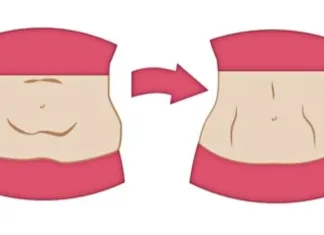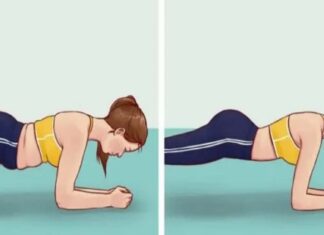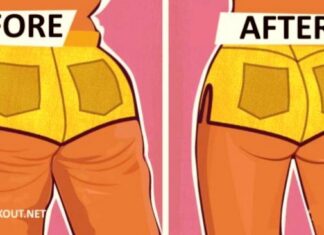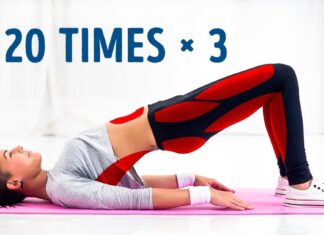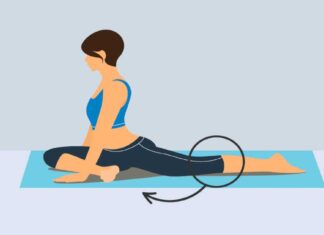Are you looking to lose weight quickly and effectively? A 1000 calorie meal plan may be the answer you’re looking for. This low-calorie diet can help you shed pounds in a short amount of time, making it a popular choice for those looking to jumpstart their weight loss journey.
In this article, we’ll provide you with a 7-day 1000 calorie meal plan that is both nutritious and easy to follow. We’ll also discuss the benefits and potential risks of this diet, as well as tips for success.
What is a1000 Calorie Meal Plan?
A 1000 calorie meal plan is a low-calorie diet that restricts your daily calorie intake to 1000 calories. This is significantly lower than the recommended daily calorie intake for adults, which is around 2000-2500 calories for women and 2500-3000 calories for men.
By consuming fewer calories, your body is forced to use stored fat for energy, resulting in weight loss. However, it’s important to note that this diet is not suitable for everyone and should only be followed for a short period of time.
Benefits of a 1000 Calorie Meal Plan
The main benefit of a 1000 calorie meal plan is rapid weight loss. By consuming fewer calories, your body will burn fat for energy, resulting in a calorie deficit and weight loss. This can be a great way to kickstart your weight loss journey and see quick results.
Additionally, this diet can also help improve your overall eating habits. By following a strict meal plan, you’ll be more mindful of what you’re consuming and may develop healthier eating habits in the long run.
Risks of a 1000 Calorie Meal Plan
While a 1000 calorie meal plan can be effective for weight loss, it’s important to note that it may not be suitable for everyone. This diet is not recommended for pregnant or breastfeeding women, children, or those with certain medical conditions.
Additionally, consuming such a low amount of calories can lead to nutrient deficiencies and potential health risks. It’s important to consult with a healthcare professional before starting this diet to ensure it is safe for you.
7 Day 1000 Calorie Meal Plan
Now that you understand the basics of a 1000 calorie diet plan, let’s take a look at a sample meal plan for 7 days. This plan includes three meals and two snacks per day, totaling 1000 calories.
Day 1
Breakfast (200 calories):
- 1 boiled egg
- 1 slice of whole wheat toast
- 1/2 avocado
- 1 small apple
Lunch (300 calories):
- Grilled chicken breast (4 oz)
- 1 cup of steamed vegetables
- 1 small sweet potato
Dinner (400 calories):
- Baked salmon (4 oz)
- 1 cup of quinoa
- 1 cup of steamed vegetables
Snacks (100 calories):
- 1 small Greek yogurt
- 1 small apple
Day 2
Breakfast (200 calories):
- 1/2 cup of oatmeal
- 1/2 cup of almond milk
- 1/4 cup of blueberries
- 1 boiled egg
Lunch (300 calories):
- Turkey and cheese wrap (4 oz turkey, 1 slice of cheese, 1 whole wheat tortilla)
- 1 small apple
Dinner (400 calories):
- Grilled chicken breast (4 oz)
- 1 cup of brown rice
- 1 cup of steamed vegetables
Snacks (100 calories):
- 1 small banana
- 1 small Greek yogurt
Day 3
Breakfast (200 calories):
- 1 boiled egg
- 1 slice of whole wheat toast
- 1/2 avocado
- 1 small apple
Lunch (300 calories):
- Tuna salad (4 oz tuna, 1/4 cup of Greek yogurt, 1/4 cup of diced vegetables)
- 1 small whole wheat pita
Dinner (400 calories):
- Baked chicken breast (4 oz)
- 1 cup of quinoa
- 1 cup of steamed vegetables
Snacks (100 calories):
- 1 small Greek yogurt
- 1 small apple
Day 4
Breakfast (200 calories):
- 1/2 cup of oatmeal
- 1/2 cup of almond milk
- 1/4 cup of blueberries
- 1 boiled egg
Lunch (300 calories):
- Grilled chicken breast (4 oz)
- 1 cup of steamed vegetables
- 1 small sweet potato
Dinner (400 calories):
- Baked salmon (4 oz)
- 1 cup of quinoa
- 1 cup of steamed vegetables
Snacks (100 calories):
- 1 small banana
- 1 small Greek yogurt
Day 5
Breakfast (200 calories):
- 1 boiled egg
- 1 slice of whole wheat toast
- 1/2 avocado
- 1 small apple
Lunch (300 calories):
- Turkey and cheese wrap (4 oz turkey, 1 slice of cheese, 1 whole wheat tortilla)
- 1 small apple
Dinner (400 calories):
- Grilled chicken breast (4 oz)
- 1 cup of brown rice
- 1 cup of steamed vegetables
Snacks (100 calories):
- 1 small Greek yogurt
- 1 small apple
Day 6
Breakfast (200 calories):
- 1/2 cup of oatmeal
- 1/2 cup of almond milk
- 1/4 cup of blueberries
- 1 boiled egg
Lunch (300 calories):
- Tuna salad (4 oz tuna, 1/4 cup of Greek yogurt, 1/4 cup of diced vegetables)
- 1 small whole wheat pita
Dinner (400 calories):
- Baked chicken breast (4 oz)
- 1 cup of quinoa
- 1 cup of steamed vegetables
Snacks (100 calories):
- 1 small banana
- 1 small Greek yogurt
Day 7
Breakfast (200 calories):
- 1 boiled egg
- 1 slice of whole wheat toast
- 1/2 avocado
- 1 small apple
Lunch (300 calories):
- Grilled chicken breast (4 oz)
- 1 cup of steamed vegetables
- 1 small sweet potato
Dinner (400 calories):
- Baked salmon (4 oz)
- 1 cup of quinoa
- 1 cup of steamed vegetables
Snacks (100 calories):
- 1 small Greek yogurt
- 1 small apple
Tips for Success
While following a 1000 calorie meal plan, it’s important to listen to your body and make adjustments as needed. If you feel weak or lightheaded, it may be a sign that you need to increase your calorie intake.
Additionally, it’s important to stay hydrated and drink plenty of water throughout the day. This will help keep you feeling full and prevent overeating.
It’s also important to incorporate exercise into your routine while following this diet plan. This will not only help you burn more calories, but it will also improve your overall health and well-being.
Conclusion
A 1000 calorie meal can be an effective way to lose weight quickly, but it’s important to consult with a healthcare professional before starting this diet. By following a nutritious meal plan and incorporating exercise, you can achieve your weight loss goals in a safe and healthy way. Remember to listen to your body and make adjustments as needed for optimal results.











